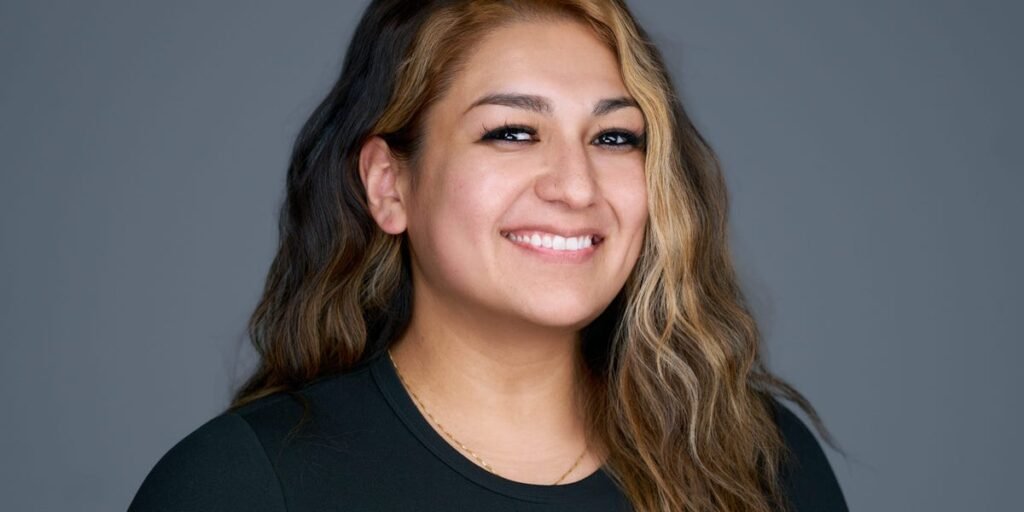This as-told-to essay is based on a conversation with Stacey Lokey-Day, a 37-year-old security operations analyst at Wiz, based in Georgia. The following has been edited for length and clarity.
I got married at 20 and started a family really young. My husband was in the National Guard, and I was a stay-at-home mom, and then our marriage ended.
At 29 years old, I was single and had two small boys. Reentering the workforce, I knew I needed to make $15 an hour, which is about $30,000 a year. I enrolled in a cybersecurity boot camp, and when I got my first contracting position, I made about three times that amount. Two years later, I hit my six-figure salary mark.
I picked cybersecurity because the opportunity was there
Before getting into cybersecurity, I worked as a 911 communications officer for six months. I was barely making enough to make ends meet. I was unhappy, stressed out, and it was not a good fit.
The area where I live is close to a military base, and on Facebook, people said that if you get the proper certification, you could work on the base and make good money as a cybersecurity contractor.
I looked online and found a cybersecurity boot camp that could be taken virtually. I was then committed to landing a job in cyber.
Thinking about entering the workforce in tech was a little crazy
Boot camps have had a bad reputation for being scammy, but I didn’t really have a choice. Some places have 24-week boot camps, which claim to teach you everything. Some of them guarantee that they’ll help you land a job.
I’m a little bit older, and I wanted a career, so I was determined to make this work. I looked at the local colleges. I ideally wanted to find one close to me and a reputable name, and Georgia Tech had one.
Growing my LinkedIn presence helped me launch my career
My boot camp professor told us cybersecurity is a small field, and we needed to network. I knew no one, and I thought about what I could do. One of the things I could do was use LinkedIn.
I would share what I was learning in boot camp to look like a real candidate in the cybersecurity field. A lot of those early posts were bumpy, reposts, or two-liners. I would also attend webinars and message the presenter on LinkedIn afterward and say, “Hey, I really appreciated your webinar, or I saw your video on YouTube. I really liked it.”
Slowly, that helped me gain more credibility because I was then connected to these prominent speakers.
A recruiter reached out to me after seeing my posts
I started my boot camp in February and was set to graduate in August. I started applying to places in July, and I was getting some interviews but not landing anything.
I was still posting that I’m looking for my first job, that I bombed an interview, or about other career journey experiences. At one point, a recruiter messaged me, and two phone calls later, they offered me a junior phishing contract position, which included analyzing emails to determine if they were benign or malicious.
My original goal was to get a job on base, but I needed a paycheck, and I realized I could just leverage this opportunity into something more.
Ultimately, it worked out. I worked 12-hour night shifts, and it was brutal. But I leveraged that nighttime experience to talk with and learn from other team members because nights were quieter. Ultimately, after three months, I was able to secure a full-time job with that company.
I’m now happily employed, but I still post on LinkedIn
After I was hired full-time, I was promoted to an associate security operations center analyst and then became a career security operations analyst. Then I reached a point where I wanted more.
I saw this opportunity at Wiz, a cloud security company, on LinkedIn, and because I always stay ready, I had my résumé prepped and applied immediately. I didn’t know anybody at Wiz or have a referral; I just applied. I was able to land the first and second interviews and eventually get that offer.
I’m now happily employed at the company as a security operations analyst, but I still post on LinkedIn. The tech market changes so fast, so I think it’s really important to keep showing up for yourself and for the future career that you want. Even if you’re happy right now, you don’t know what’s going to happen in the future.
Do you have a career journey story to share? Contact this reporter at aapplegate@businessinsider.com.
Read the full article here


